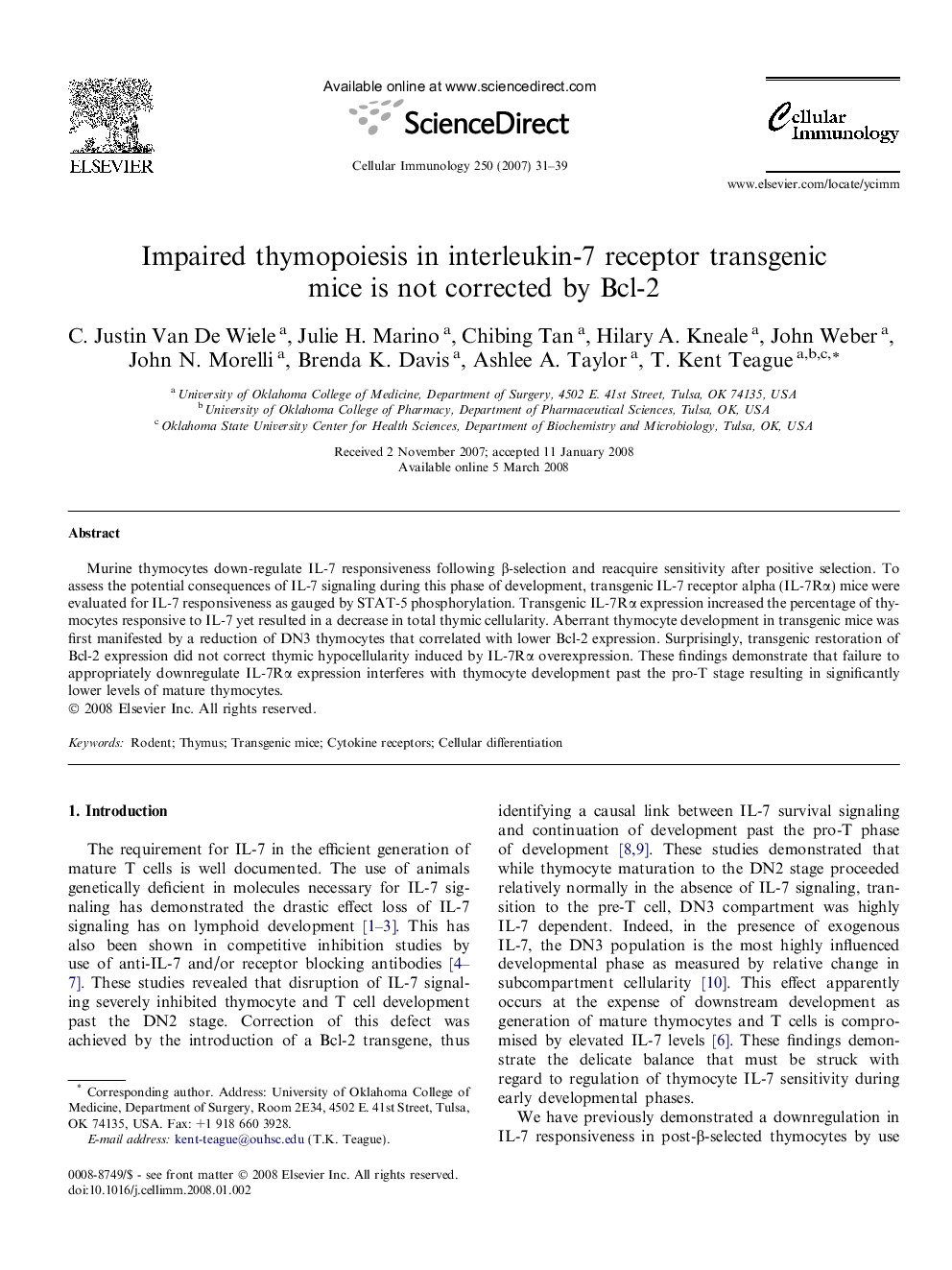| Article ID | Journal | Published Year | Pages | File Type |
|---|---|---|---|---|
| 2167963 | Cellular Immunology | 2007 | 9 Pages |
Abstract
Murine thymocytes down-regulate IL-7 responsiveness following β-selection and reacquire sensitivity after positive selection. To assess the potential consequences of IL-7 signaling during this phase of development, transgenic IL-7 receptor alpha (IL-7Rα) mice were evaluated for IL-7 responsiveness as gauged by STAT-5 phosphorylation. Transgenic IL-7Rα expression increased the percentage of thymocytes responsive to IL-7 yet resulted in a decrease in total thymic cellularity. Aberrant thymocyte development in transgenic mice was first manifested by a reduction of DN3 thymocytes that correlated with lower Bcl-2 expression. Surprisingly, transgenic restoration of Bcl-2 expression did not correct thymic hypocellularity induced by IL-7Rα overexpression. These findings demonstrate that failure to appropriately downregulate IL-7Rα expression interferes with thymocyte development past the pro-T stage resulting in significantly lower levels of mature thymocytes.
Related Topics
Life Sciences
Biochemistry, Genetics and Molecular Biology
Cell Biology
Authors
C. Justin Van De Wiele, Julie H. Marino, Chibing Tan, Hilary A. Kneale, John Weber, John N. Morelli, Brenda K. Davis, Ashlee A. Taylor, T. Kent Teague,
